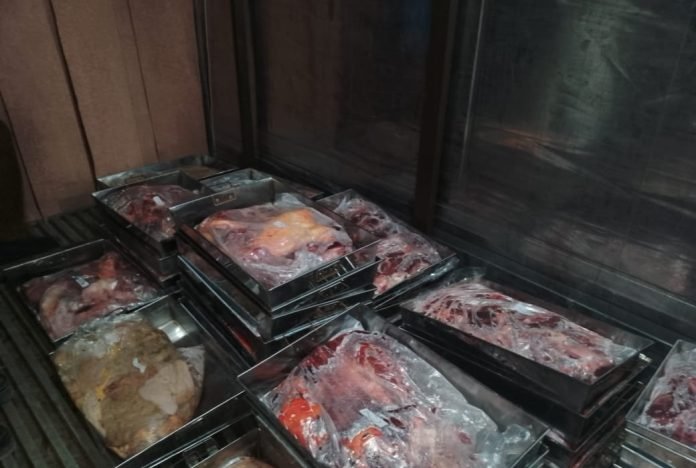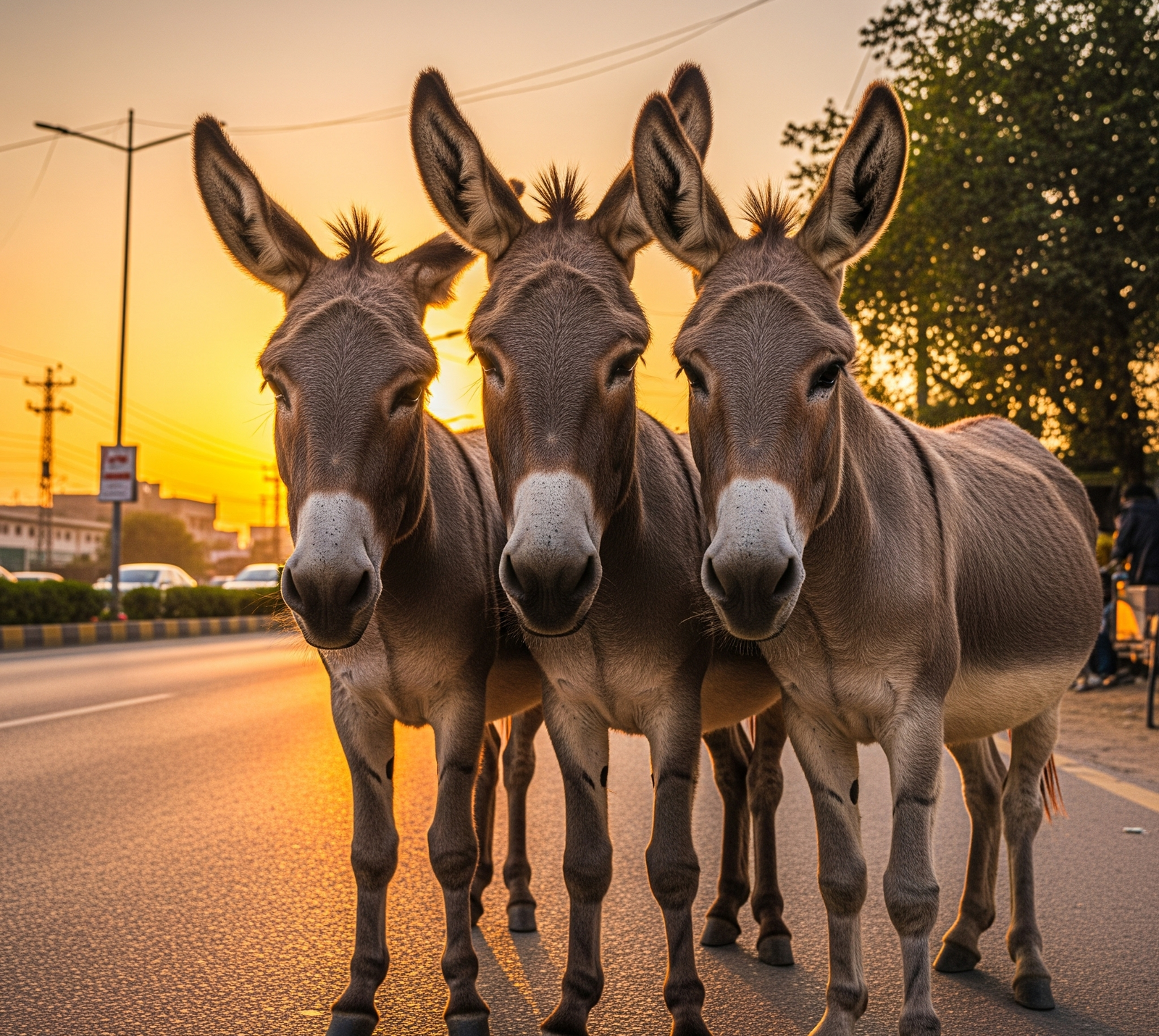In a deeply shocking and alarming incident, the Islamabad Food Authority Seizes 900+ Kg of Donkey Meat In Tarnol area of Islamabad. This discovery has stirred public outrage, raising serious concerns about the safety and authenticity of the meat being sold in markets and served in eateries across the capital.
According to official reports, the operation was carried out following a tip-off received by the IFA from a concerned citizen who suspected illegal meat trading in the area. Acting swiftly, a special team of food safety officers raided a private premises in Tarnol, where they uncovered the disturbing truth: a large stash of meat that, upon inspection and later veterinary verification, turned out to be donkey meat.
Meat Meant for Sale to Local Butchers and Eateries
What makes the incident even more worrying is the fact that the confiscated meat was intended for distribution to various butcher shops and restaurants in the twin cities of Islamabad and Rawalpindi. Authorities believe that unsuspecting consumers may have already consumed such meat in recent weeks, as this is not believed to be an isolated case. READ NEXT https://elevenpakistan.com/cow-breaks-world-record-for-milk-production/
Operation Details
The raid was part of IFA’s broader efforts to crack down on illegal and unhygienic meat suppliers who are operating outside the law and putting public health at grave risk. Upon entering the premises, the inspection team found the meat stored in highly unhygienic conditions. It was poorly packed, kept without refrigeration, and in clear violation of all food safety standards.
Preliminary examination revealed that the meat was not only from donkeys but was being processed and cut to resemble beef or mutton, making it nearly impossible for an average consumer to distinguish the difference. Samples were immediately sent to a veterinary laboratory for DNA testing, and the results confirmed the worst: the meat was indeed from donkeys.
Arrests and Legal Action
Following the seizure, several suspects involved in the illegal trade were taken into custody. They are currently being interrogated to uncover the full scale of the operation, including where the donkeys were being sourced from, how long the meat trade had been running, and whether any local butcheries or restaurants knowingly purchased the meat. x
Legal proceedings have been initiated against the culprits under Pakistan Pure Food Laws and Animal Slaughtering Regulations. If found guilty, the accused could face heavy fines and jail time, as the sale and consumption of donkey meat is strictly prohibited in Pakistan for health, ethical, and religious reasons.
Public Health and Ethical Concerns
Donkey meat consumption poses serious public health risks. Unlike commonly consumed livestock like goats, cows, or chickens, donkeys are not raised or maintained for human consumption. Their bodies may carry harmful bacteria, parasites, and diseases, especially when they are slaughtered in unregulated, unsanitary environments. Medical experts warn that consuming such meat could lead to gastrointestinal infections, food poisoning, and other health complications.
There are also ethical and religious issues tied to the consumption of donkey meat. In Pakistan, a Muslim-majority country, many people adhere to strict dietary laws which deem donkey meat as haram (forbidden). Therefore, the idea that such meat may have been unknowingly consumed by people is extremely disturbing for both health and religious reasons.
Public Reaction
News of the raid spread rapidly across social media platforms and local news outlets, sparking widespread anger and disgust. Citizens are demanding strict punishment for those responsible and calling on the government to enhance food safety monitoring and enforcement.
Many people expressed their frustration, pointing out that food adulteration and illegal meat sales have become an alarming trend in various parts of the country. “This is not just a crime — it’s a betrayal of public trust,” said one social media user. Another commented, “We trust our local meat sellers with our health. This kind of criminal negligence is unforgivable.”

Islamabad Food Authority Responds
In response to the growing public concern, the Islamabad Food Authority has assured citizens that it is stepping up its surveillance and inspection activities across the region. They are also working to set up a reporting hotline for citizens to report any suspicious activities related to food safety or meat adulteration.
An IFA spokesperson stated, “We are fully committed to ensuring the food served to our citizens is safe, hygienic, and in line with religious and ethical standards. No one involved in this heinous act will be spared.”
A Call for Vigilance
This incident serves as a chilling reminder that vigilance is key, not only on the part of authorities but also from the general public. Consumers are being urged to buy meat only from reputable sources, ask questions about the meat’s origin, and avoid purchasing from shady or unlicensed sellers.
Food safety activists are also urging for stronger tracking systems and licenses for meat vendors, and regular lab testing of meat samples across the country to ensure such scandals are caught early and prevented in the future.
Conclusion
The seizure of over 900 kilograms of donkey meat in Islamabad’s Tarnol area is more than just a local food scandal — it’s a serious wake-up call about the need for stronger regulations, public awareness, and stricter enforcement of food safety laws in Pakistan.
The Islamabad Food Authority’s swift action is commendable, but this incident has exposed deep loopholes in the system that require immediate reform. It also highlights the unethical and dangerous practices that some individuals are willing to adopt for profit, regardless of the risks they pose to human health and religious beliefs.
Going forward, constant monitoring, transparent food sourcing, and public cooperation will be essential to safeguard the public’s right to safe, clean, and halal food.
READ NEXT



